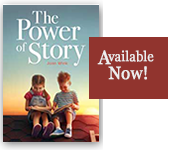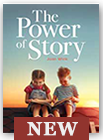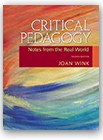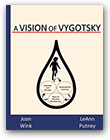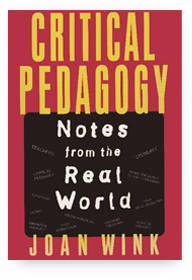pp. 203-205
by Joan Wink
Published by Libraries Unlimited/ABCLIO
Copyright © 2018 by Joan Wink
What Libraries Will Be Like in 10 Years
One Mind Reflects on Five Minds
When I think about literacy and learning and the future, the considerable body of research from Howard Gardner is a good compass. The primary idea, which I have gleaned from his research is that there is no one type of intelligence; rather, there are many ways of knowing. Howard Gardner (Gardner, H., 1983,1993, 2004, 2007, 2011a, 2011b) provides guidance when thinking about the momentous and rapidly increasing changes in the future.
During the past couple of decades, you have probably been aware of his construct of the Multiple Intelligences (MI) (Gardner, H., 2011; Gardner, H. E., 1983, 1993, 2011), which are designed to open education up to many ways of learning and knowing. Our schools traditionally have relied heavily on reading, writing, and math. Gardner challenged education to have a broader sense of intelligences, which he defined as linguistic (word smart), logical-mathematical (number and reasoning smart), musical (note smart), bodily-kinesthetic (physical and movement smart), spatial-visual (picture and sight smart), naturalistic—natural, (nature smart) interpersonal (people smart), intrapersonal (self smart), and existential (big questions smart). MI took hold in schools, and many teachers worked to expand the ways in which students could demonstrate their knowledge. Multiple ways of knowing still influences learning and literacies in schools.
However, Gardner (2006, 2007) has moved on with new challenges for us in the 21st century, and again I am influenced by his thinking, particularly when I think of changes in the future of libraries and literacies. His question now is, what kinds of minds do we need and want for the 21st century?
When I think of literacy and learning in the future, I again turn to Gardner’s ideas regarding what kinds of minds we need and want for the 21st century. His theory, based on his research, is that we need five different types of minds in order to be able to succeed and thrive in this century.
The disciplined mind is one that can master at least one way of thinking, being, doing; for example, in a craft or a profession or discipline. In the previous century, a specific talent or skill (one disciplined mind) often led to a lifetime career. However, with the rapid changes in society, young people will need to have more than one disciplined mind, as they will have to adjust to learning new skills for careers, which are not yet developed.
The synthesizing mind is the mind, which can see large, complex, and dynamic bodies of knowledge, and can understand, evaluate objectively, and make sense of it and even articulate it for others. It would be safe to say, that I have been stretching my synthesizing mind throughout the writing of this book as I attempt to put the pieces of the puzzle together so that you can make meaning of it.
The creating mind is one, which can take us to new and unexpected places. The creating mind opens the door to brand-new ways of understanding and thinking. It breaks new ground and finds unexpected answers. In addition, the creating mind can also change others’ ways of thinking and doing.
The respectful mind can see the human connections and interactions among us all—even with those who have walked very different paths and have come to know and understand the world in new ways. The respectful mind can accept and respect the other; the respectful mind takes us beyond mere tolerance. It helps us respond sympathetically to another’s points of view and background, even in the public libraries now, which are often filled with those far less fortunate than we.
The ethical mind challenges us to think beyond ourselves to a greater good for all. The ethical mind takes us beyond self-interest. This mind challenges us to work for self and social improvement of life for our communities. It challenges us to ask ourselves what our own responsibilities are. It calls us to full citizenship.
My first reading of Five Minds for the Future was sobering. I could feel Gardner’s concern for the future on each page of his book as I read. Yet, his book called me back again and again. It is a part of me, as we march into the future. A podcast of an “Interview with Howard Gardner: Five Minds for the Future” is available free in several places on the Internet. Bridging the Gaps has it available, as does Huffington Post, and Scribd. Gardner’s own website, howardgardner.com, has several videos of him sharing these ideas.
